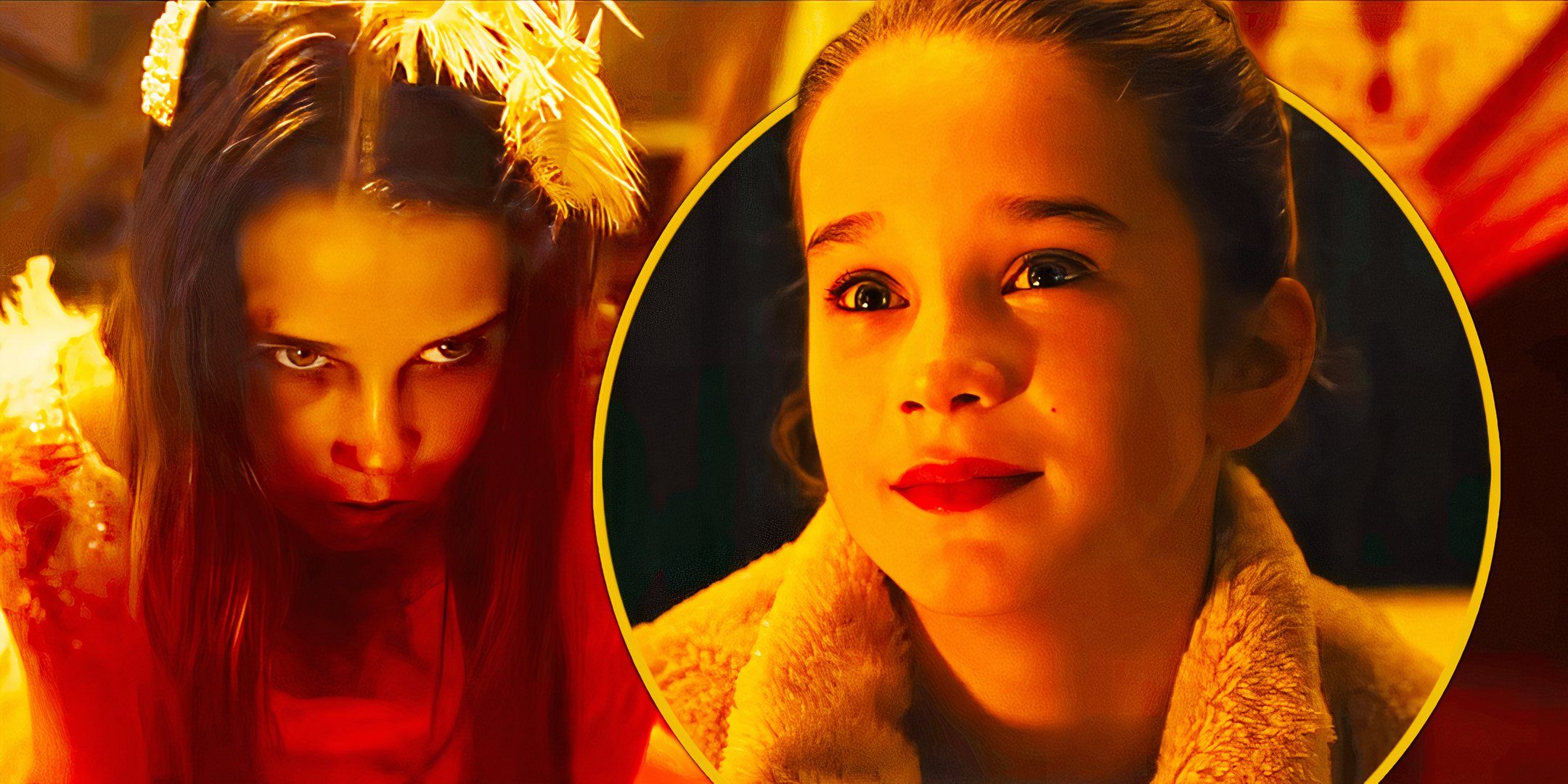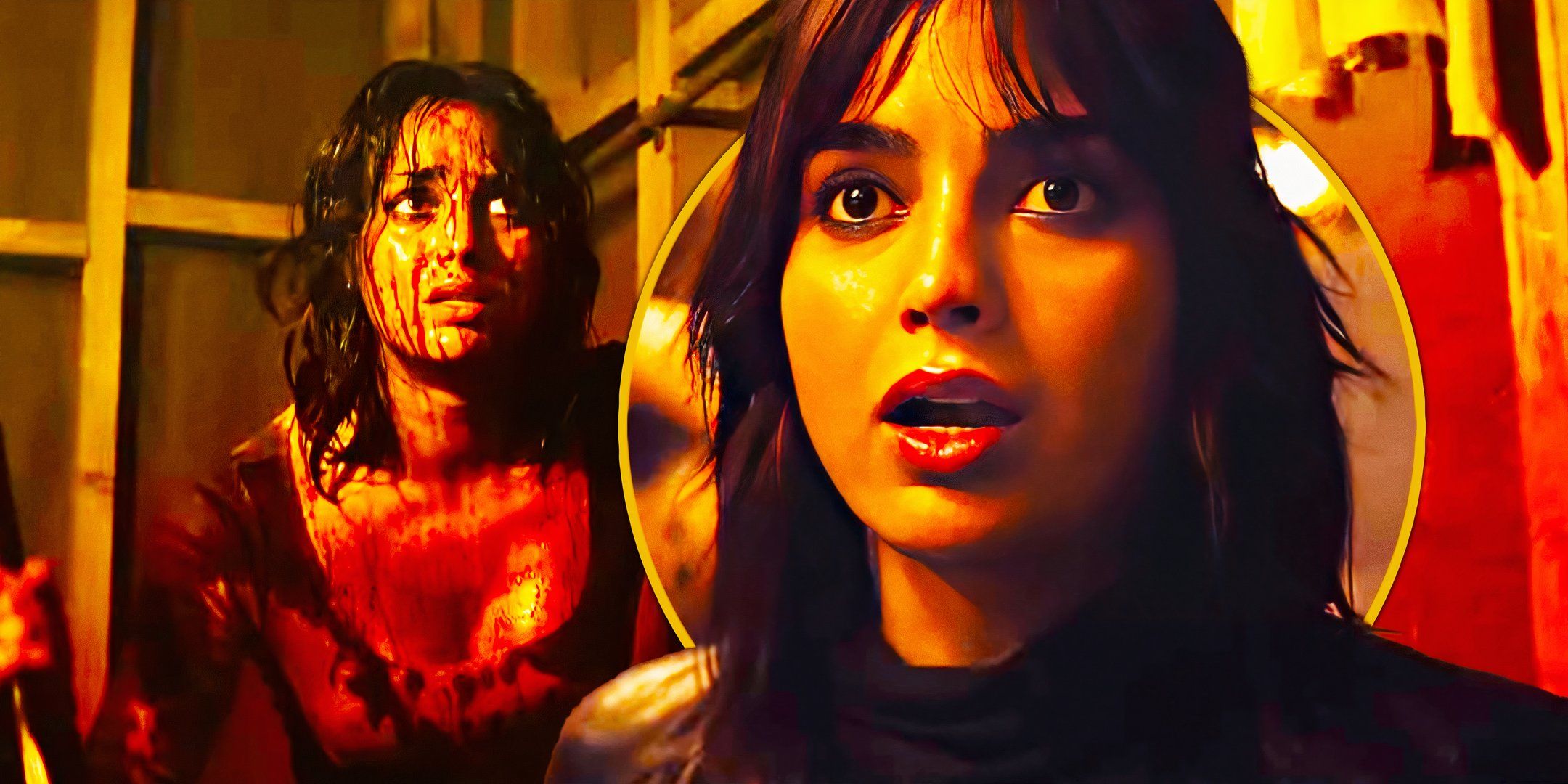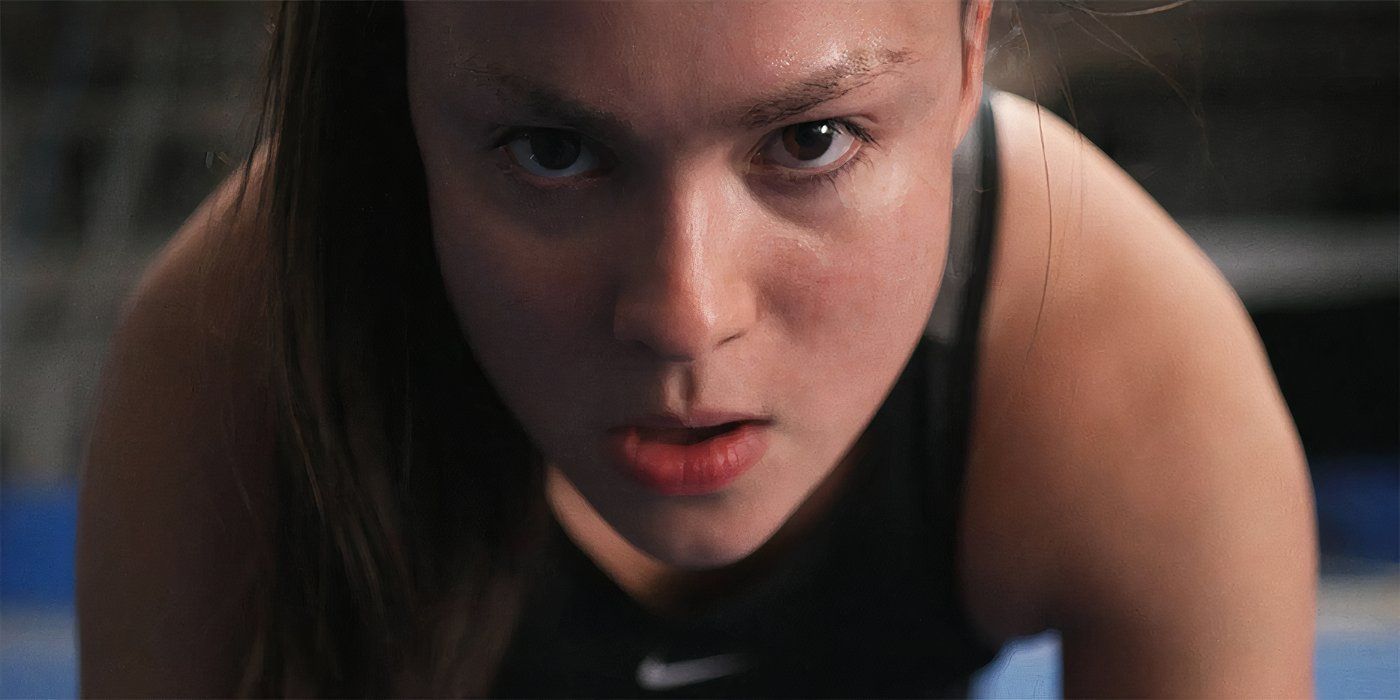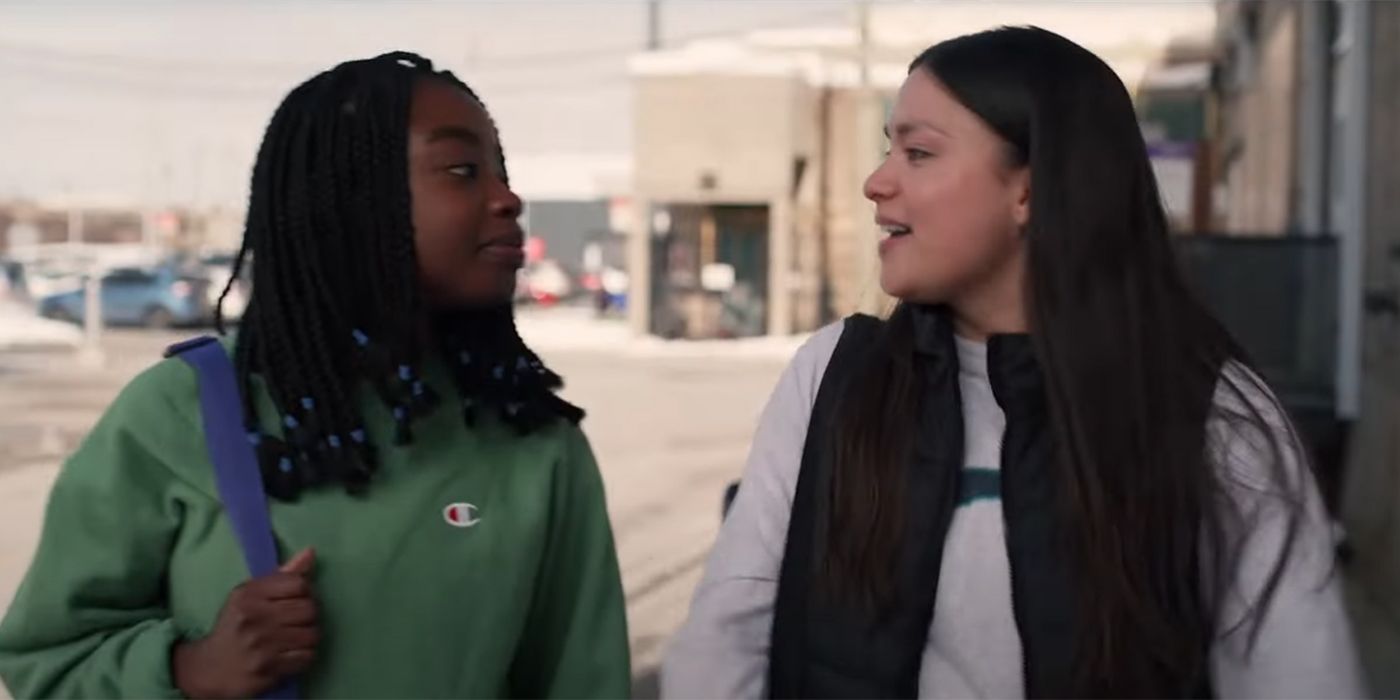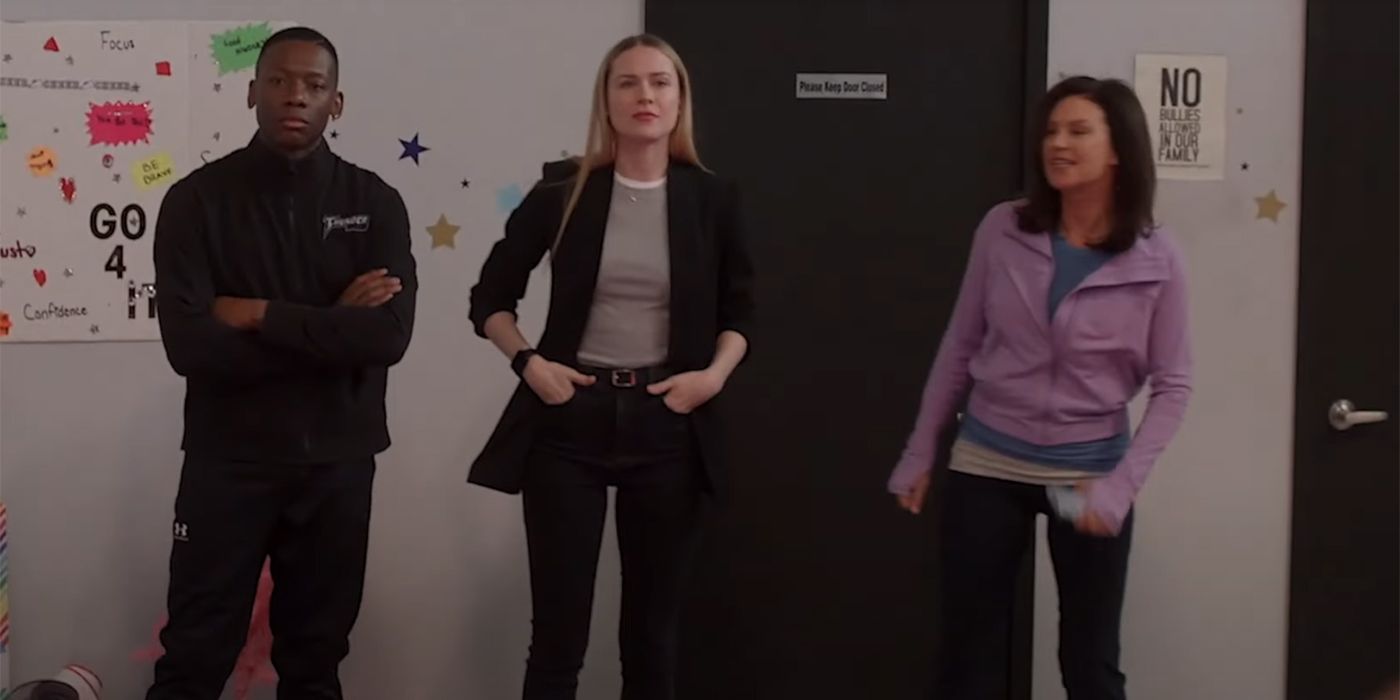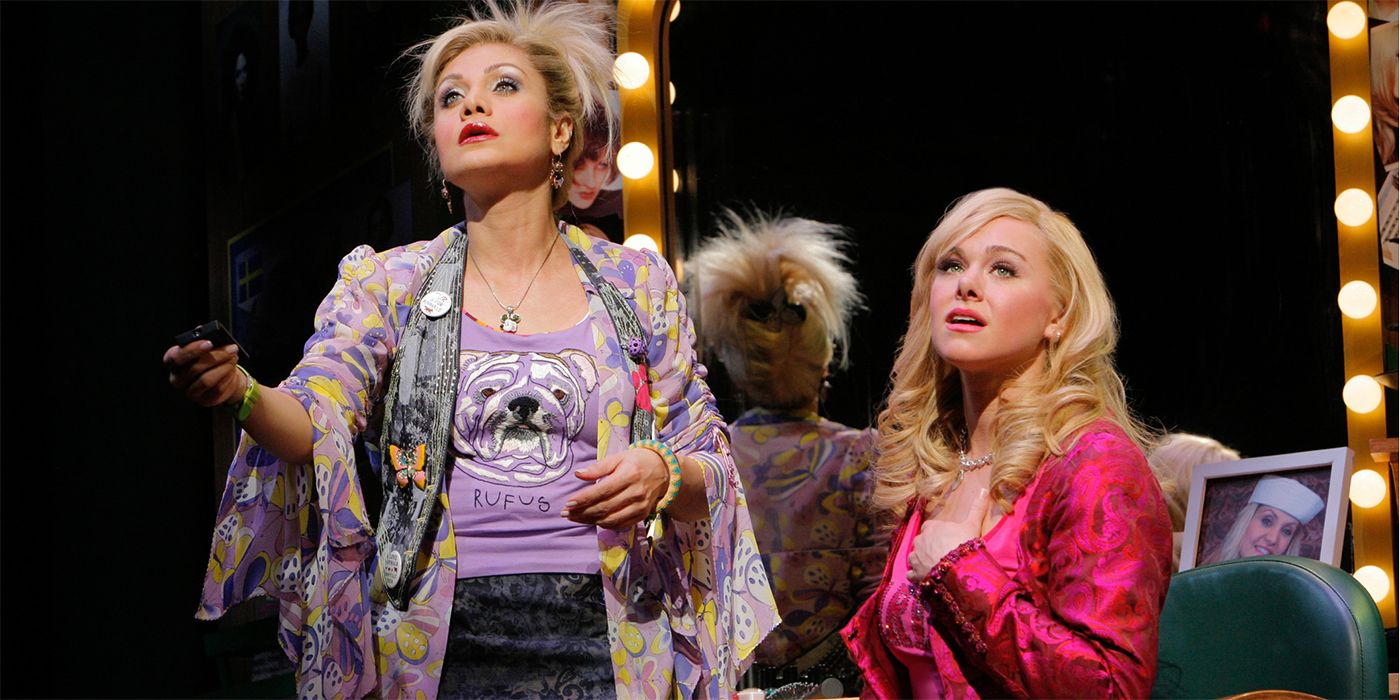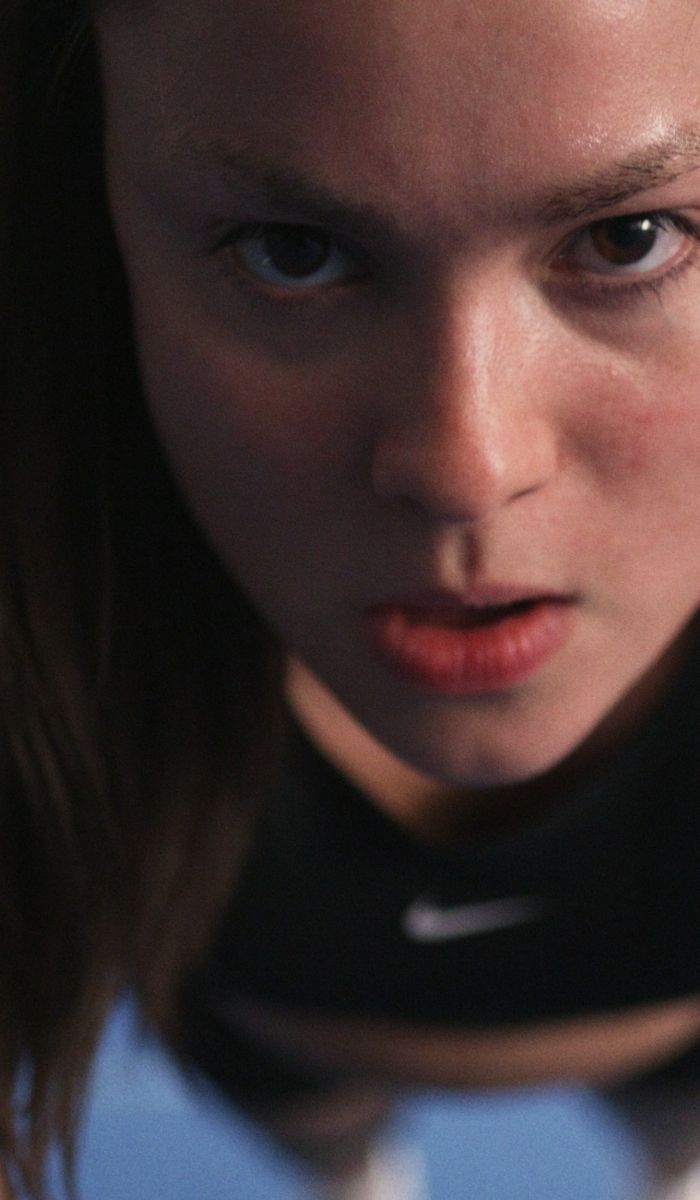Summary
- Backspot, which was in the works for 6 years, was inspired by director D.W. Waterson's family and their love of sports.
- The film focuses on Devery Jacobs' Riley, a young athlete balancing passion and pressure, and includes themes of anxiety and identity.
- Cast members, including Kudakwashe Rutendo and Thomas Anthony Olajide, emphasize the importance of genuine relationships and authentic chemistry.
Produced by Elliot Page's Page Boy Productions and Devery Jacobs (through Night is Y), Backspot premiered at the South By Southwest film festival 6 years after its original conception. Filmmaker D.W. Waterson was inspired by their own family's love of sports, and they collaborated with screenwriter Joanne Sarazen after researching competitive cheerleading in-depth to weave a coming-of-age tale about young athletes balancing their passions with the pressures of perfection.
The primary young athlete in question is Riley (played by Echo's Devery Jacobs), who is accepted into an all-star cheerleading squad alongside her girlfriend Amanda. Though at first elated at the thought of being coached by the great Eileen McNamara (Evan Rachel Wood), she soon realizes that she needs to battle her own anxiety to come out on top without losing herself or the things that are important to her.
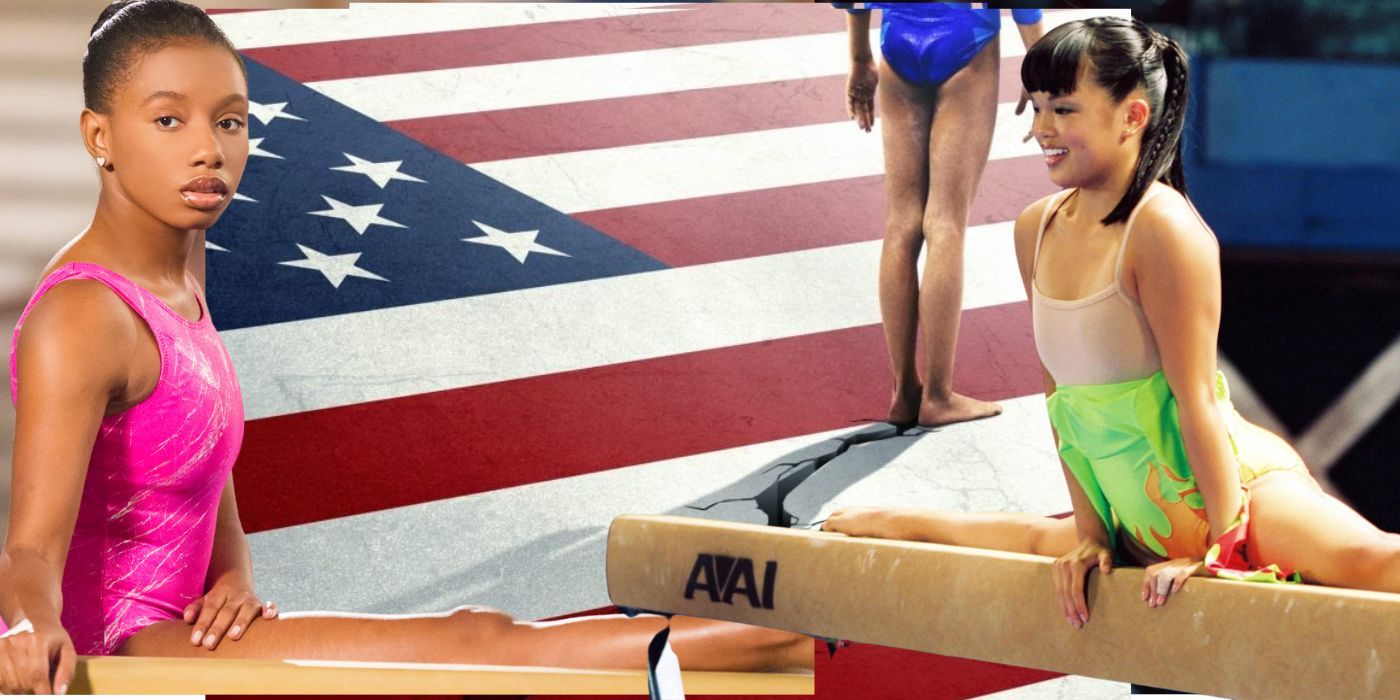
15 Best Gymnastics Movies Ranked
From gripping documentaries to fun comedies, gymnastics has been a part of some great movies.
Screen Rant interviewed Waterson and Jacobs while they were premiering their film at SXSW, along with cast members Kudakwashe Rutendo and Thomas Anthony Olajide.
Backspot’s Backstory Is Very Personal
Screen Rant: D.W., while Backspot is not really based on your life, it is inspired in part by your family's love of sports. Can you talk about the long journey from the germ of this idea?
D.W. Waterson: Yeah, totally. Devery and I have been working on this film for six years as producers, and it's definitely been a labor of love. For me, [it was about] bringing the personal stories of growing up in a sports household where everybody was either lovely or awful to each other, depending on which sports team was winning - which I thought was insane. But I was like, "What an interesting way into a sports film, to have that commentary."
Because we're always seeing sports films about what's happening on the field or on the ice, and it was really important for me to dissect how that pressure - which obviously is in the film as well - affects all the other relationships surrounding that sport. As well as highlighting how badass cheerleaders are, since I feel like we're used to seeing cheerleaders with pom-poms through the male gaze as silly and pretty. I'm like, "No, you don't want to run into a cheerleader in an ally, man. They'll kick your ass or put you in the air or something!"
Devery, I know you've already had experience writing and directing, and you really put your all into projects. Can you talk about what it means to you to be a producer and how you approached Backspot from that angle?
Devery Jacobs: Yeah, I think I started producing on Backspot in 2017, going on six years ago now, even before writing and directing on Reservation Dogs. But this was [personal]. I used to be a competitive gymnast, and I used to be a former provincial champion, so this was combining our love for underestimated sports, female athletics, and queer stories.
We wanted to make sure that we were able to showcase the communities that we come from and the generational gap between queer folks, so we can find those bridges. We really wanted to make sure the relationship between Riley and Amanda, who Kudakwashe plays so beautifully, was a positive and healthy, queer relationship where the conflict isn't derived from queerness.
Backspot’s Characters & Relationships Are Born Out Of Deep Real-Life Friendship
Absolutely. And I love that from the opening moments of them together, we see pure joy. We're rooting for this relationship and love both characters individually, and it's about protecting that fragile flame throughout. Can you talk about how you work together to build that chemistry and that dynamic, Kudakwashe?
Kudakwashe Rutendo: I really love how D.W. handled it; they're a fantastic director. But before we started filming, Dev, D.W., and I would meet and discuss the relationship. Like, "What are their favorite movies? How long have they been dating?" And getting that history really helps feed and inform performances and also was great for me and Devery because we got to be in a space where we weren't filming, but we could kind of vibe each other out and get comfortable with each other and discuss our ideas and thoughts. I think that really contributed to the relationship we had.
And then it also helped that we went to the gym and Devery saw me falling all the time. So, I threw embarrassment to the wind. I did cheer for eight years, so it was like stepping back into it. But with not nearly so much finesse because I'd been out of it.
Devery Jacobs: I think for both of us, it was a very humbling experience, especially working with all of the cheerleaders who were actually training and competing now. Trying to keep up with them was no small feat.
Thomas, Devon had me cracking up from the word go. He's so specifically deadpan - were you inspired by anyone specific when playing him?
Thomas Antony Olajide: To be honest, it was more just delving into Joanne Sarazen's writing. I feel like you just delve into the writing, and it kind of tells you where to go. So, I didn't really need to draw from anyone specifically in my life or in culture; I kind of just read it on the page. I feel like I could see who this person was immediately and get a sense of what the rhythm was. Particularly when Devon introduced Riley and Amanda to the team, it was just on the page.
Devery Jacobs: I was just gonna add, we had essentially an all-queer team behind the camera. But as a producer, I thought Thomas' performance was really nuanced and incredible. Had it been a non-queer director behind the lens, they probably would have cast somebody who was [more stereotyped] or straight. But it would have been maybe more of a caricature, and we just really wanted to make sure that we could find somebody who was able to play Devon's depth and humanity and that connection. And it was only ever Thomas.
It's also helpful that we all met each other in the Film Institute six years ago, and we very quickly created a family between the three of us. I knew the role was kind of written for Thomas, whether he knew it or not, and it was inspired by him. [Laughs] That was the true answer.
D.W. Waterson: But that was our favorite scene, the two of them at the end, with that tender moment. That was out favorite scene in the script, and then on the day, just being able to work with them and already having that intimacy between the three of us really, really created a really special moment.
D.W., you've been building towards this for some time, but you have lots of experience in shorts and music videos as well. What was the biggest leap for you in the production of Backspot, or what was the most surprising challenge?
D.W. Waterson: When people are throwing bodies in the air, you're really like, "We're insured, right? The paperwork's in?" I felt pretty comfortable, to be honest. I did three seasons of a digital web series that I created and produced called That's My DJ. We kind of did that with no money and shot it super guerilla-style, and that's party scenes, so you're dealing with a lot of extras and a lot of crazy things. We shot at actual parties, and then would plug in things later.
I think we started shooting Backspot in a club scene because I was like, "I'm most comfortable with the most chaotic situation." I felt great and ready and just excited to kick off my debut feature film.
Evan Rachel Wood Had Backspot’s “Completely Geeking Out”
Kudakwashe and Devery, both your characters are immediately enamored with Evan Rachel Wood's Eileen. And of course, who would not be? What was it like working with her and also mapping out this very different relationship that you each have with her as the movie progresses?
Kudakwashe Rutendo: First of all, working with her was amazing because she's so talented. Everyone's aware of her body of work, and working with her was no different. She was such a force that was not hard. I saw Dev as Amanda, me being Riley, so with Eileen, I was like, "So cool!" And she's fantastic, that's the other thing. It was really great working with someone like Evan; she's she's so talented.
Devery Jacobs: We were completely geeking out. In what world with our debut feature film would we ever get Evan Rachel Wood? What a heavy hitter and what a force. We were so fortunate to be able to collaborate with her.
But when she was on set, I think every time we would yell cut, the really intimidating illusion of Eileen would melt away. She would be laughing and joking with us, and she's super chill but also iconic.
On the other hand, Thomas has a different relationship with Eileen and is able to introduce these characters to what they might expect from her and why they should treat her as less than a god.
Thomas Antony Olajide: I feel like Devon sits in between where Eileen is, which is an extreme win-at-all-costs mentality, and then Riley, who is this new, ambitious athlete who wants to do whatever they can to succeed. I feel like Devon has tasted both ends of that spectrum, so he offers something needed for Riley as we discover maybe throughout the throughout the story. But also maybe something for Eileen.
I've kind of thought about why Devin is Eileen's assistant coach, and maybe that's why. Because Devin also tempers a little bit of Eileen's extremism, and she kind of needs that and knows it, so she keeps him around. Maybe unconsciously.
Competitive Cheerleaders Love Legally Blonde Too
D.W., you mentioned how Backspot doesn't shy away from the difficulty of competitive cheerleading, and the pain that goes into that. How do you plan out those shots? Like, "What are the stunts that we can do? How can we film this safely? And what's going to show off cheerleading best on camera?"
D.W. Waterson: We worked with Cheer Fuzion from Brampton, shout out to the cheer squad. For five years, my writer and I would go to practices, and we would sit and observe because we really wanted to tell an accurate story. We saw a lot of silliness and just teenagers being teenagers. We saw a lot of eating junk food and getting those calories so they could burn them all off immediately, and we saw a lot of pressure and stress; stress on the body and stress on the mind.
When it comes to telling stories about young people, it's tough. It's tough to be a young person, and when that pressure is on you, and you're putting it on yourself and the pressure of the sport? That's such a cooker that I'm like, "This is where I want to focus this story."
Devery and Kudakwasha, it's very significant to me that you two sing "Omigod You Guys" together - and it sounds good! When we finally get Legally Blonde: The Musical: The Movie in our lives, do y'all wanna be in it?
Devery Jacobs: Yes, absolutely. Yes. First in line to audition. I don't have the talent at all to be able to do anything like that, though.
Kudakwashe Rutendo: They have made me such a fan, so I will be in line. I'll play a tree.
Did you introduce it into the story, or how did it become part of the project?
Devery Jacobs: I think D.W. just wanted a moment of levity to show that these people can really escape, and that Amanda and Riley find such a safe haven in each other from all of the stress that Riley experiences and her anxiety, and then all of the pressures that Amanda has of having to be responsible in her family household. They get to just be kids and love together, and also be stupid and dorky and sing the Legally Blonde musical.
Devery, I have to say I loved Reservation Dogs and the work you did on it. I'm so sad that it left me. But you obviously are doing great, between Backspot and Echo. How do you feel your work on that project has elevated your career or opened doors for you?
Devery Jacobs: Obviously it's been such an incredible blessing to be able to be a part of that show. It's opened so many doors. Sterlin Harjo, who's the showrunner, has welcomed me into the writers' room and has helped me get so much more experienced behind the camera than I had previously - which was mostly through short films and stuff.
I think having a better understanding of story for Backspot. We were able to really work with our incredible writer Joanne Sarazen in making sure that we were being true to the story and bringing it to life. And it's been incredible to be able to film in our city in Toronto with people that I love. It's just such a treat to get to do Backspot.
Backspot premiered on March 9 at SXSW and will be in theaters on May 31.
Source: Screen Rant Plus


